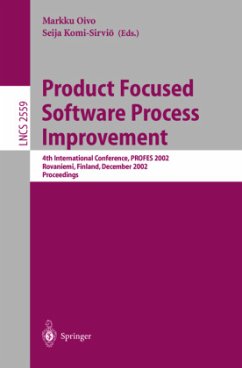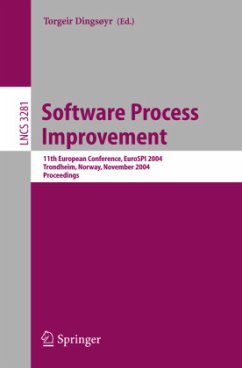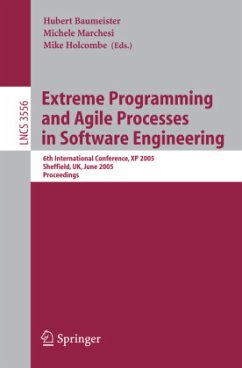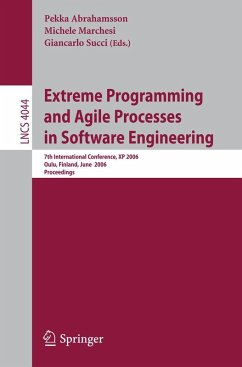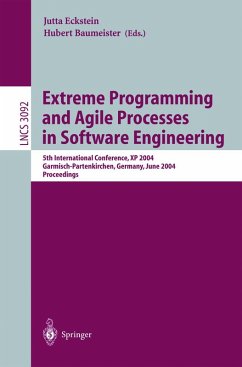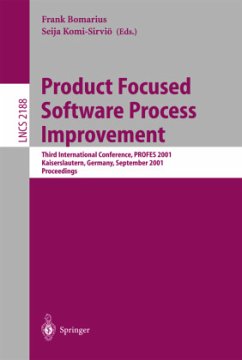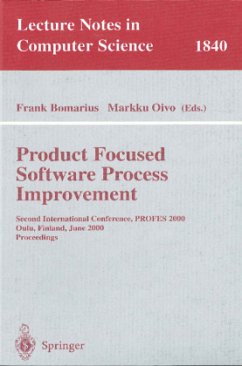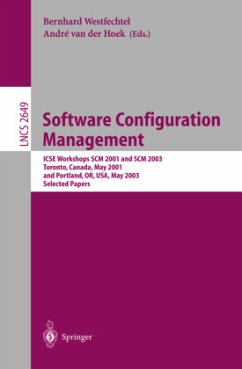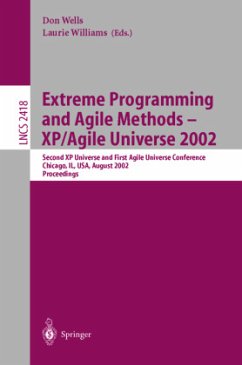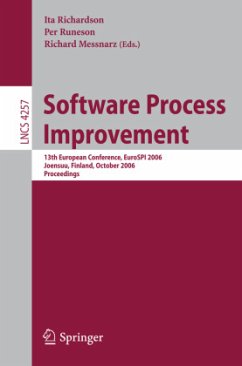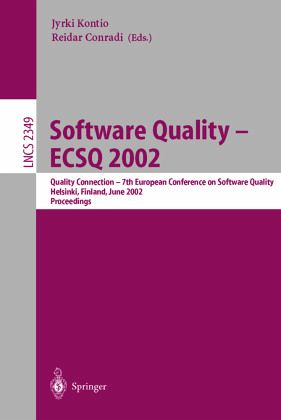
Software Quality - ECSQ 2002
Quality Connection - 7th European Conference on Software Quality, Helsinki, Finland, June 9-13, 2002. Proceedings
Herausgegeben: Kontio, Jyrki; Conradi, Reidar

PAYBACK Punkte
20 °P sammeln!
Software professionals and companies live in a new world today. Increasingly complex systems need to be built faster and cheaper. While many of the est- lished approaches in software quality are still valid, the software quality c- munity is going through a paradigm shift that requires a re-assessment of our current method and tool portfolio, as well as creating new and more e?ective solutions. We have selected two themes for this conference to highlight this paradigm shift. Our ?rst theme, "production of attractive and reliable software at Internet speed" sums up the dilemma many software org...
Software professionals and companies live in a new world today. Increasingly complex systems need to be built faster and cheaper. While many of the est- lished approaches in software quality are still valid, the software quality c- munity is going through a paradigm shift that requires a re-assessment of our current method and tool portfolio, as well as creating new and more e?ective solutions. We have selected two themes for this conference to highlight this paradigm shift. Our ?rst theme, "production of attractive and reliable software at Internet speed" sums up the dilemma many software organisations face. In order to be competitive, software should contain advanced features and run reliably - yet it should be developed quickly and cost e?ectively for the right market window. Finding the right balance between these objectives is a critical question that will determine business success in the years to come. Our second theme, "production of software with a dynamic partnership n-work" highlights the current trend of using partnerships and subcontractors as integral players in the software development process. Partnerships sometimes need to be created quickly to respond to a market opportunity, yet the costs and speed of cooperation must be competitive. Di?erent companies have di?erent processes, quality tools and cultures, yet they should cooperate seamlessly for the best result.





